Laser Wavelength – Friday Pop Quiz March 1st, 2024
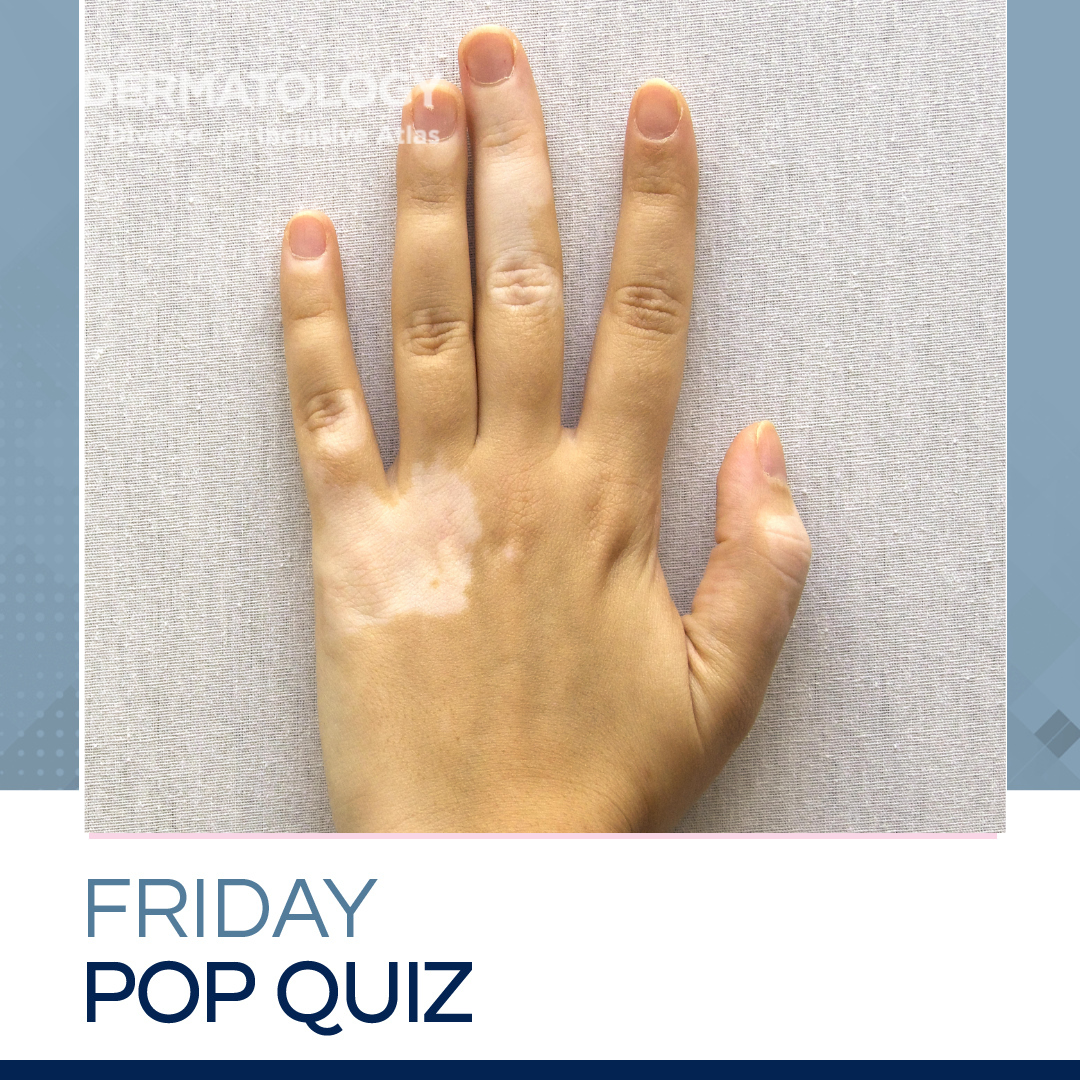 Light directed at approximately which of the following wavelengths is most appropriate for treatment of the shown condition?
A. 308nm
B. 365nm
C. 532nm
D. 595nm
E. 1064nm
To find out the correct answer and read the explanation, click here. …
Light directed at approximately which of the following wavelengths is most appropriate for treatment of the shown condition?
A. 308nm
B. 365nm
C. 532nm
D. 595nm
E. 1064nm
To find out the correct answer and read the explanation, click here. …
 Light directed at approximately which of the following wavelengths is most appropriate for treatment of the shown condition?
A. 308nm
B. 365nm
C. 532nm
D. 595nm
E. 1064nm
To find out the correct answer and read the explanation, click here. …
Light directed at approximately which of the following wavelengths is most appropriate for treatment of the shown condition?
A. 308nm
B. 365nm
C. 532nm
D. 595nm
E. 1064nm
To find out the correct answer and read the explanation, click here. … Continue reading "Laser Wavelength – Friday Pop Quiz March 1st, 2024"


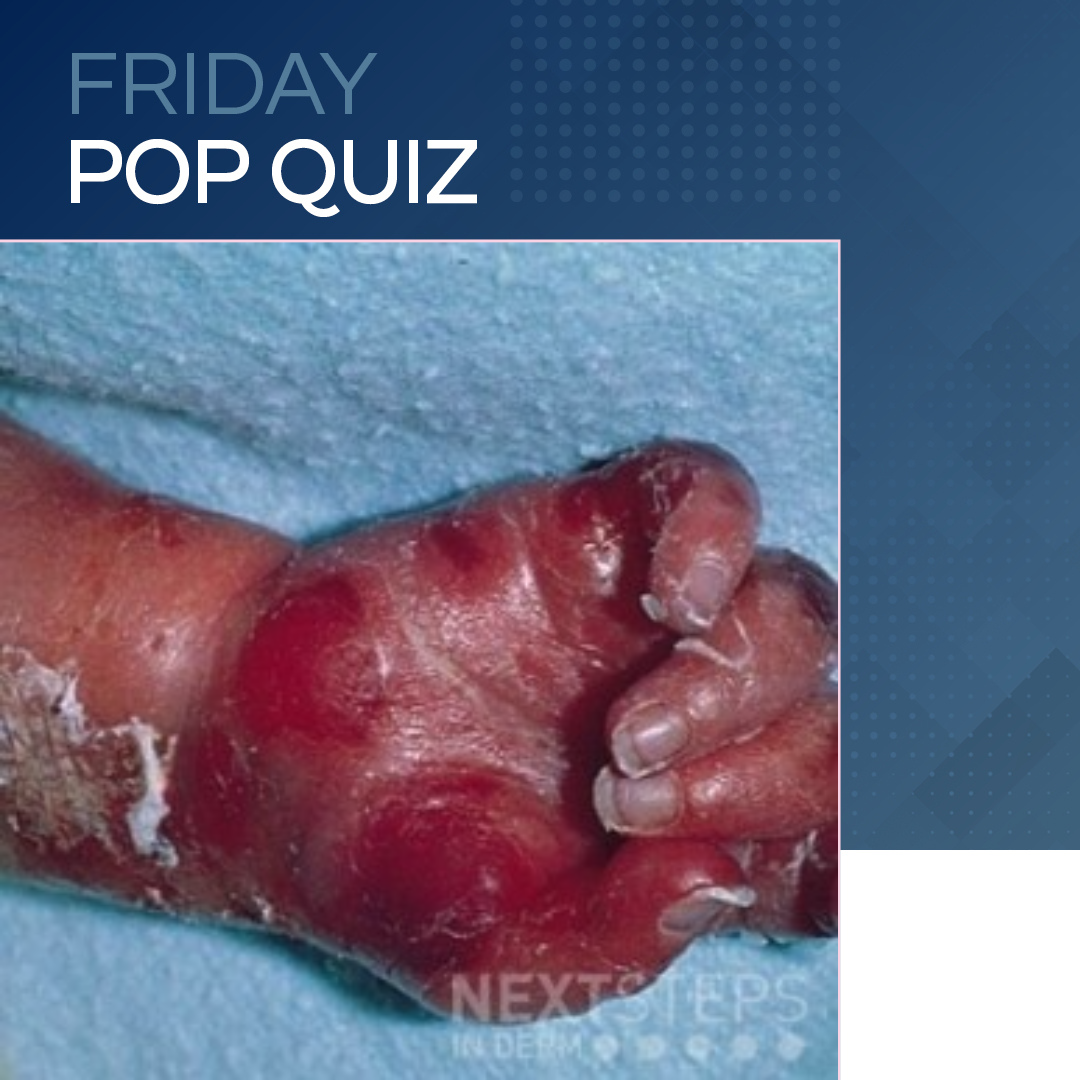 What is the underlying infection in this neonate?
A. Syphilis
B. Leishmania
C. Chlamydia
D. Gonorrhea
E. Tuberculosis
To find out the correct answer and read the explanation, click here. …
What is the underlying infection in this neonate?
A. Syphilis
B. Leishmania
C. Chlamydia
D. Gonorrhea
E. Tuberculosis
To find out the correct answer and read the explanation, click here. … 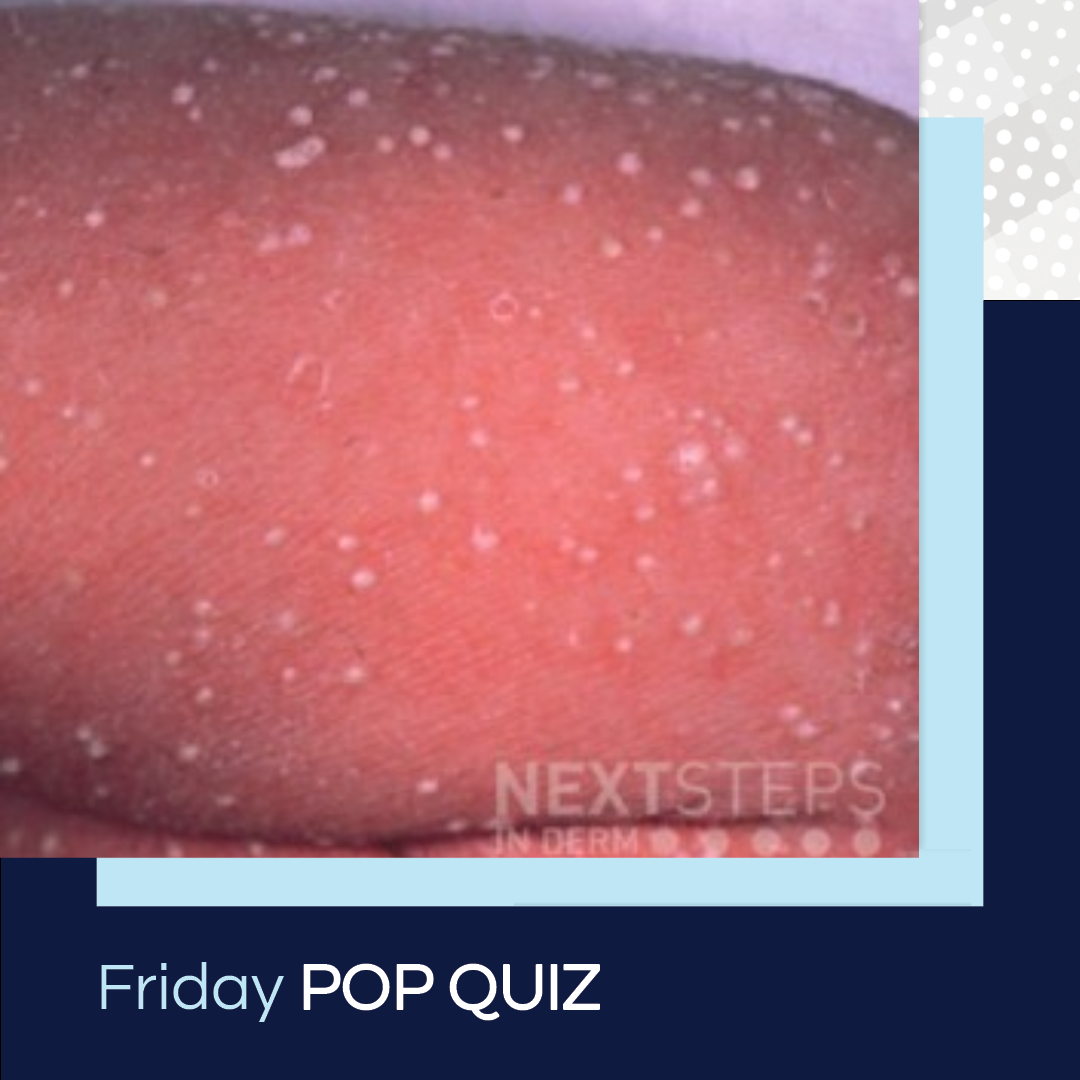 Which of the following cells is most likely to be seen in a biopsy of a lesion from this 1-day-old child?
A. Eosinophils
B. Histiocytes
C. Lymphocytes
D. Mast cells
E. Neutrophils
To find out the correct answer and read the explanation, click here. …
Which of the following cells is most likely to be seen in a biopsy of a lesion from this 1-day-old child?
A. Eosinophils
B. Histiocytes
C. Lymphocytes
D. Mast cells
E. Neutrophils
To find out the correct answer and read the explanation, click here. … 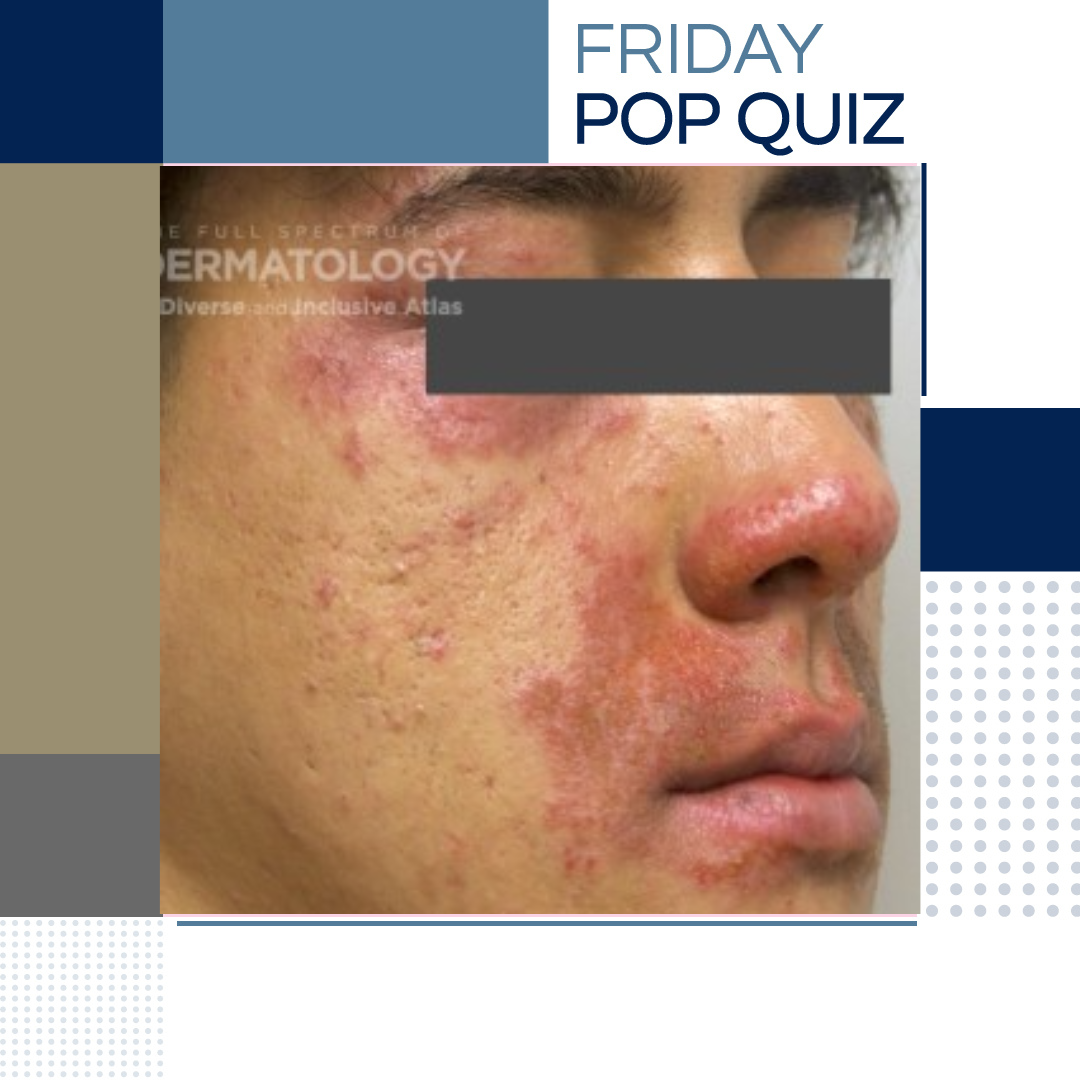 A 41-year-old woman presents for evaluation of lesions on her face as shown. She previously noticed small bumps on her face in affected areas 3 weeks ago, after which she used desonide ointment daily for roughly 2 weeks with expansion of the affected areas. Which of the following is the most appropriate next step in the management of the patient?
A. Oral tetracycline
B. Patch testing
…
A 41-year-old woman presents for evaluation of lesions on her face as shown. She previously noticed small bumps on her face in affected areas 3 weeks ago, after which she used desonide ointment daily for roughly 2 weeks with expansion of the affected areas. Which of the following is the most appropriate next step in the management of the patient?
A. Oral tetracycline
B. Patch testing
… 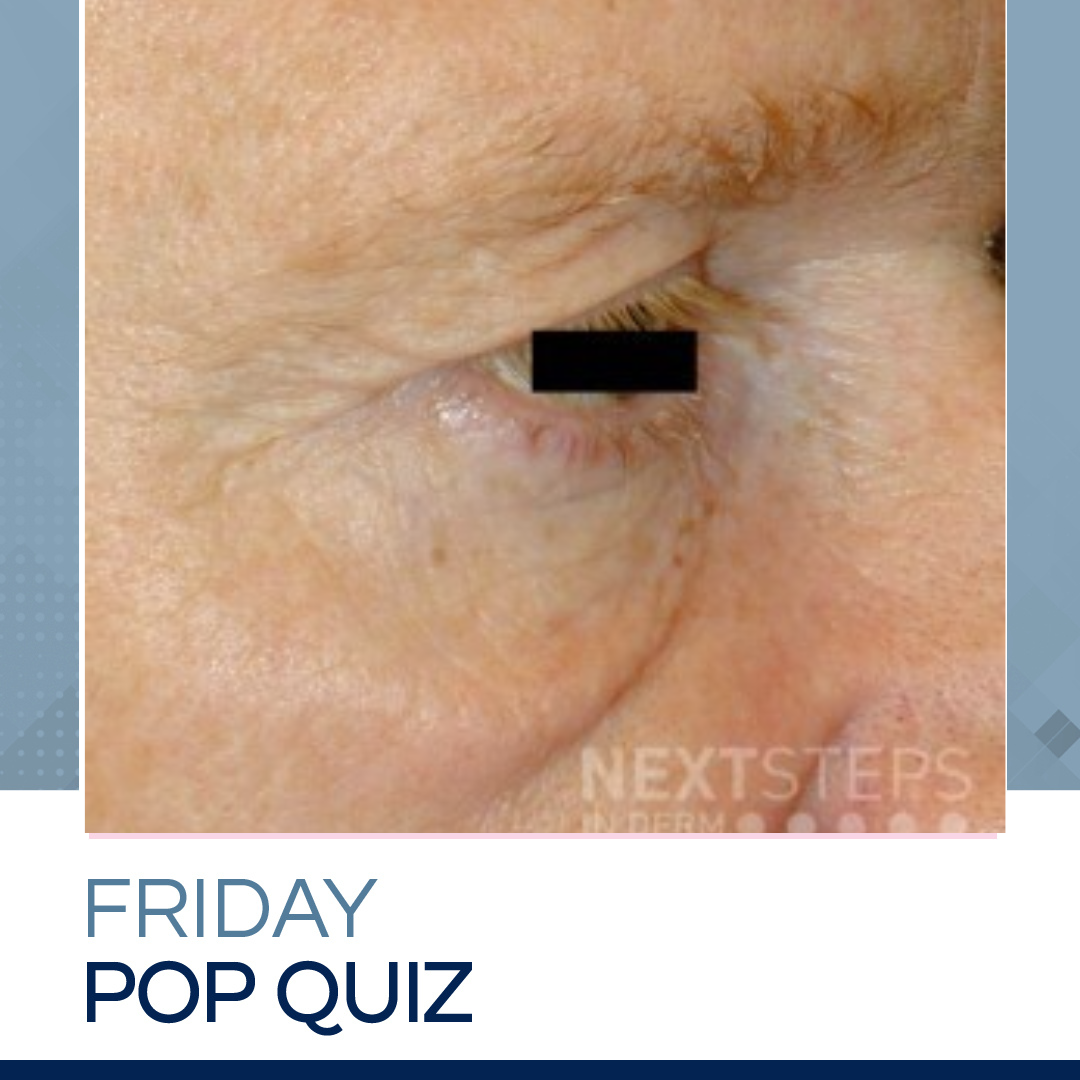 A 56-year-old man with a history of lower lid blepharoplasty presents for follow-up 3 days after undergoing botulinum toxin injection into the lower eyelid for periocular rhytides. Which of the following is the most likely cause of the patient’s findings?
A. Allergy to botulinum toxin
B. Formation of festoon
C. Infraorbital malar edema
D. Normal physiologic changes
E. Undiagno …
A 56-year-old man with a history of lower lid blepharoplasty presents for follow-up 3 days after undergoing botulinum toxin injection into the lower eyelid for periocular rhytides. Which of the following is the most likely cause of the patient’s findings?
A. Allergy to botulinum toxin
B. Formation of festoon
C. Infraorbital malar edema
D. Normal physiologic changes
E. Undiagno …